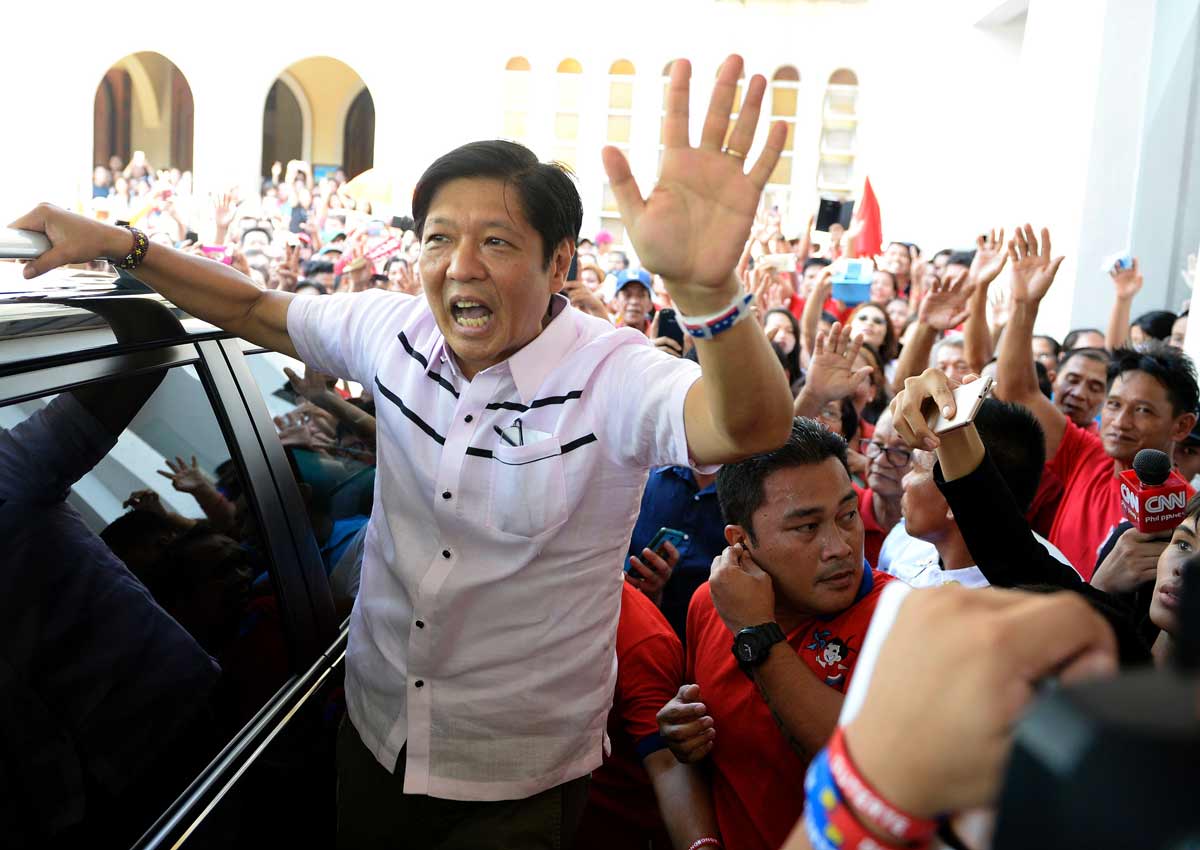MANILA – Ferdinand Marcos’s son threatened legal action Saturday to reverse his narrow defeat in recent Philippine elections, which analysts said had been the family of the late dictator’s best chance to regain the presidency.
An official canvass showed Friday that Ferdinand Marcos Jnr lost the vice presidential contest to neophyte rival Leni Robredo by just over 263,000 votes.
The younger Marcos, a sitting senator, had aimed for the family’s biggest political victory since its humiliating downfall in 1986 after a “People Power” uprising ended 20 years of the family’s rule.
But he insisted Saturday election he was potentially deprived of nearly four million votes through cheating and malfunctioning vote-counting machines, and was not ruling out an election protest.
“The search for Senator Marcos’s missing votes did not end with the canvassing,” his lawyer George Garcia said in a statement Saturday.
His legal team is gathering evidence in support of the planned appeal, the lawyer added.
The Marcos family had targeted the vice presidential post, elected separately from that of president, as a springboard for a potential presidential run for the 58-year-old son in 2022.
“I think this election was arguably the best and probably last chance for the Marcoses to wrest back control of Malacanang (presidential palace),” Manila-based analyst Richard Javad Heydarian told AFP.
“It (the loss) would make it that much harder for the Marcoses to regain power through elections,” Ramon Casiple, executive director of the Institute for Economic and Political Reforms in Manila, told AFP.
Barring a reversal of the May 9 result, Marcos would have to wait for the 2019 mid-term elections to try and regain his senate seat, Casiple added.
The Marcos family fled to US exile after the bloodless revolution ended the dictator’s one-man rule, in which thousands of critics were thrown in prison and $10 billion was allegedly plundered from state coffers.
The patriarch died in exile in Hawaii in 1989.
Despite the loss, analysts are not ruling out his son’s potential presidential run at the end of president-elect Rodrigo Duterte’s term in 2022.
Heydarian and Louie Checa Montemar, a De La Salle development studies lecturer, both said the Marcos family would remain a major force, at least in its traditional regional bailiwick in the north.
“The only way now to banish any immediate future threat of a Marcos comeback would be to live up to the promise of raising the (economic prospects of the) marginalised,” Montemar told AFP.
This month the dictator’s widow, Imelda Marcos, swept to a third term in the House of Representatives representing Ilocos Norte province.
Her daughter, Imee Marcos, was also elected as Ilocos Norte governor for the third time.

































































